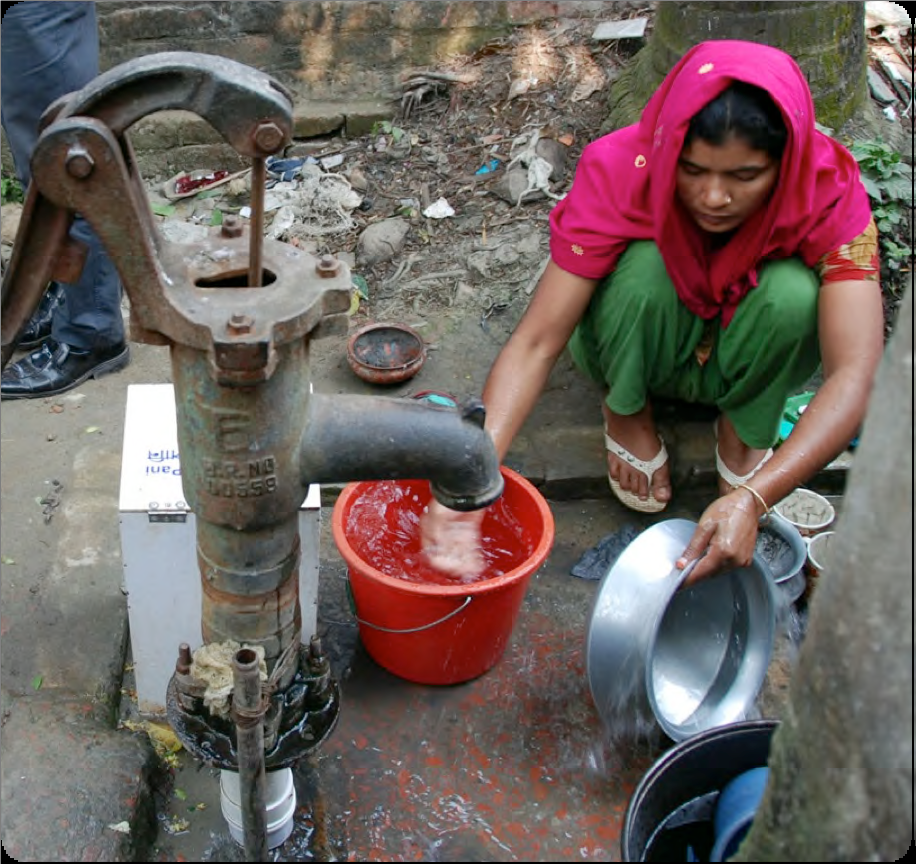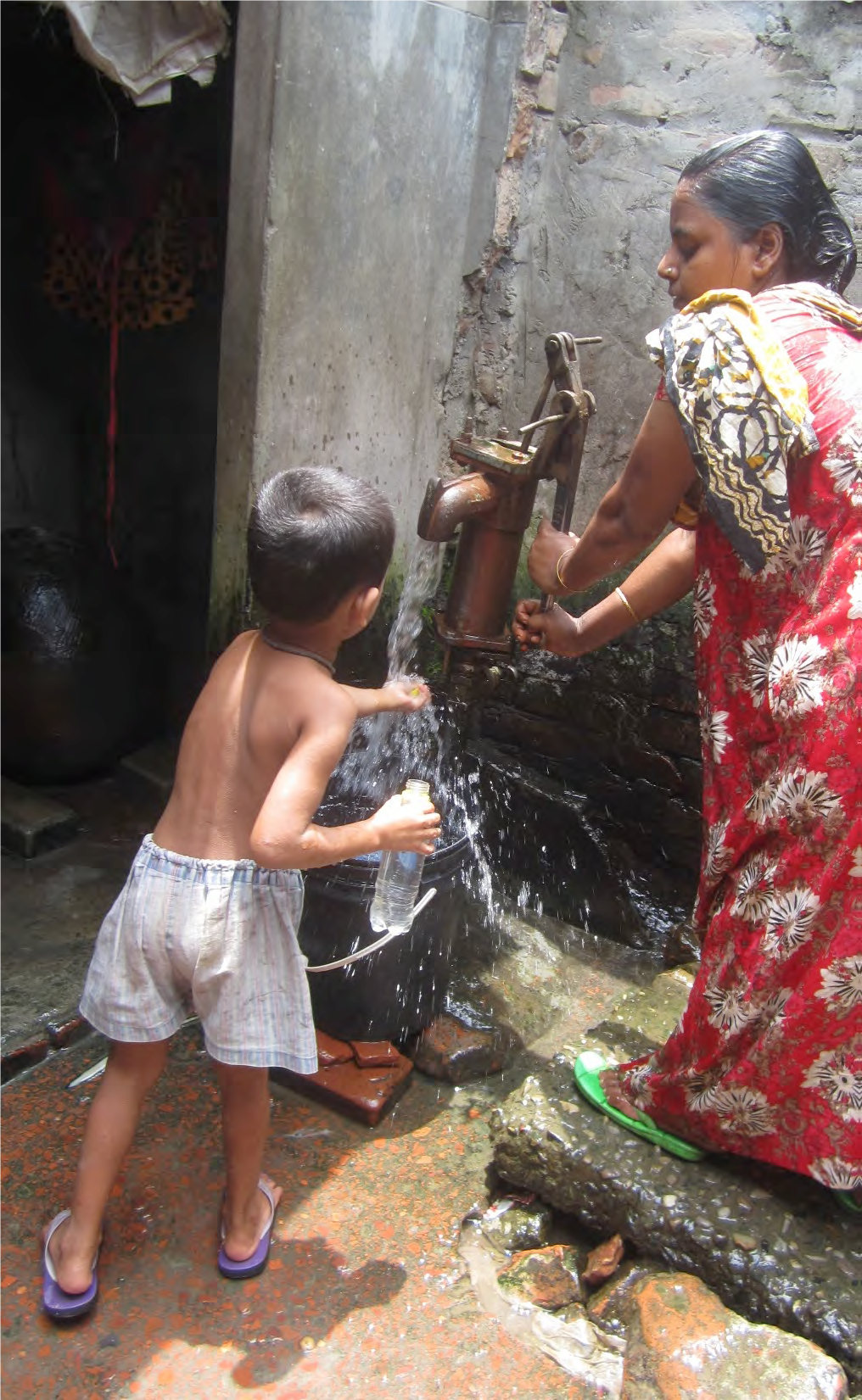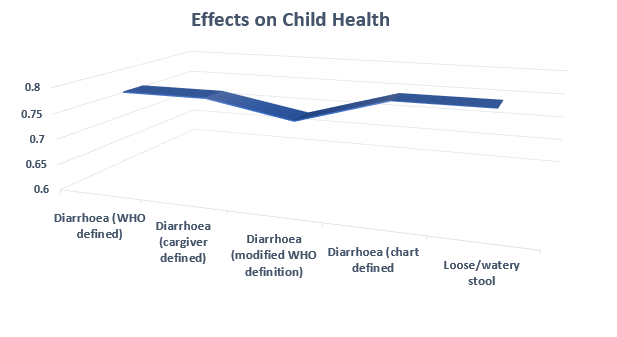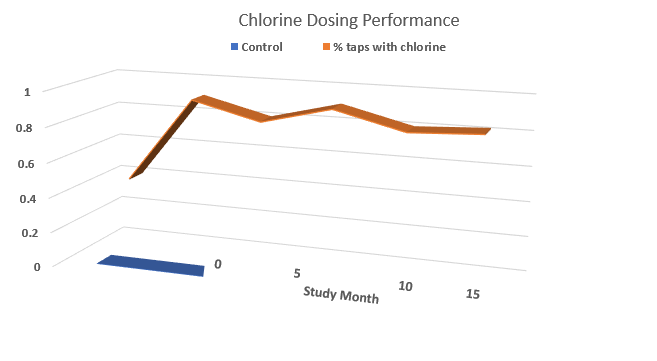Successful Aquatabs Flo Double Blind Study in Bangladesh 1
The study published in The Lancet evaluated the impact of the Aquatabs Flo, installed at shared water points in urban Bangladesh, aiming to reduce child diarrhoea in densely populated, low-income communities.

This double-blind, cluster-randomized controlled trial involved 100 water points where drinking water was automatically chlorinated at the point of collection. The primary findings indicated that children in the intervention group experienced significantly less diarrhoea than the control group, which received a placebo.

The treated water maintained a sustained 83% free chlorine residual, significantly contributing to reduced diarrhoea cases. This intervention highlights the potential of passive chlorination at the point of collection as a scalable and effective strategy to improve water quality and reduce child diarrhoea, supporting global progress towards ensuring universal access to safe and affordable drinking water.




